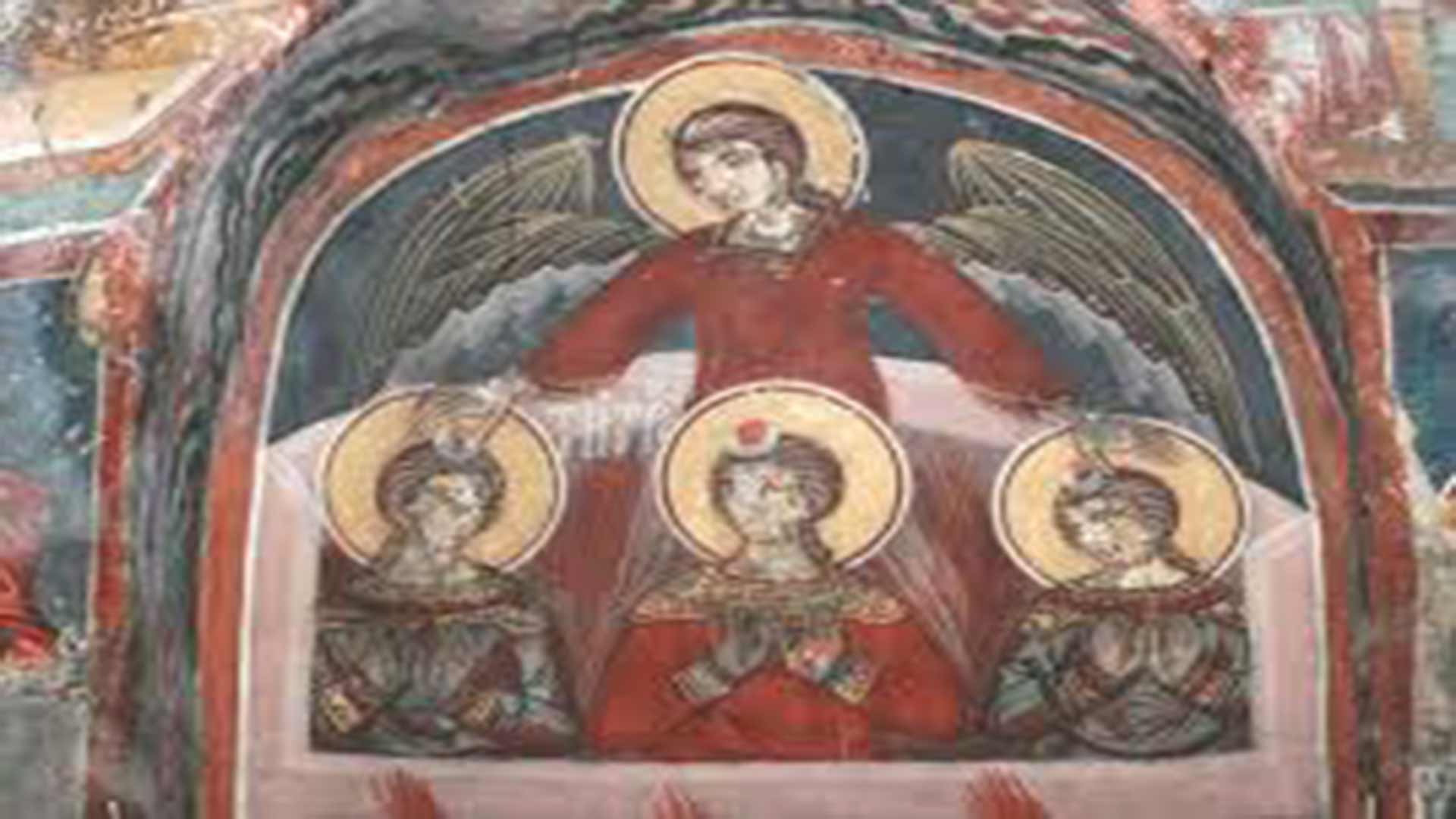Forging ahead resolutely
LENT 2020 – Day 36
Readings: Dan 3: 14-20.24-25.28; Ps Dan 3, 29-30, 31, 32, 33, 34; Jn 8: 31-42
The first reading is as interesting as it is chilling. King Nebuchadnezzar of Babylon was a megalomaniac king who had erected a statue of gold. Prophet Daniel’s three companions Shadrach, Meshach and Abednego, who administered the province on his behalf, did not turn up at the official inauguration, as they were expected to. The monarch felt offended but gave them a fresh chance to show their respect, an offer that the trio rebuffed. They were ready to be thrown into the furnace, as per the king’s threat, but not bow to a cult image. Although they didn't plead with Yahweh to save them, they knew that He would. Or even if He didn’t, they would accept their fate in total resignation.
This is an apocryphal story whose sole purpose is to illustrate how God is all-powerful and rewards those who trust in Him. Not only did the trio escape totally unhurt, there was a fourth person keeping them company in the furnace. Nebuchadnezzar was convinced that it was an angel from above. Now in awe of Yahweh, he permitted the practice of the Jewish religion in his kingdom.
Not all Jews in Babylon, however, were like Shadrach, Meshach and Abednego. Many did worship false gods; they were polytheistic like the king himself. No doubt, back home, in Jesus’ time, the Jews did worship one God, according to the teaching of their first patriarch Abraham. They even made it a point to tell Jesus so. But for His part, the Messiah was pointing to their slavery to sin, and made a promise to deliver them from that scourge.
Well, if the people truly believed in Him, Jesus expected them to show their total allegiance. He reasoned as follows: “If the Son makes you free, you will be free indeed. I know that you are descendants of Abraham; yet you seek to kill me, because my word finds no place in you.” Jesus argued that killing him would mean going against Abraham, who always heard the Father and did what He commanded. In turn, the Jews insisted that they were not born of fornication (prostitution, that is, unfaithfulness to God), and that they had only one Father, that is, God.
The Jews, mired in their traditional way of thinking, were obstinate. They could not accept the fact that Jesus could speak about the Father in intimate terms. Hence they took Him to be an impostor, a man possessed, who spoke of not dying – when even Abraham had eventually died.... But that was how Jesus spoke the full truth, and nothing but the truth. He wouldn’t speak just what the people wanted to hear....
That puts a great onus on us. Let's reflect on whether our word is truly Yes, yes, or No, no. Or are wishy-washy and ineffectual? If the Lord finds us lukewarm or halfhearted, He will spit us out of His mouth. Hence He invites us to show enthusiasm, dynamism, and deep commitment to Him and His Church. Come then, let’s go forward together with our united resolve and strength.
We live in glass houses
LENT 2020 – Day 34
Readings: Dan 13: 1-9, 15-17, 19-30, 33-62; Ps 22, 1-3a, 3b-4, 5-6; Jn 8, 1-11
Today’s first reading is one of the longest in the lectionary, and its tenor one-off. The amorous story is seemingly at variance with the mood of the Holy Week. It reads like a sensational story taken straight from the front pages of a newspaper or a racy novella. Except for the presence of a moral, for sure.
The reading talks of two men whom beauty has deceived and lust perverted the heart. As if that were not enough, the duo comprised elders of society who sinned by pronouncing “unjust judgements, condemning the innocent and letting the guilty go free.”
Prophet Daniel jumps into the arena to call their bluff. The law permitted this even if the accused were already on the way to their death. The two perverts were going to bear false witness, condemning a daughter of Israel without examining her and learning the facts, as the law prescribed. Daniel told them in no uncertain terms that the angel of God was waiting with his sword to saw them in two. Then all the assembly shouted loudly and blessed God, for they saw that God truly saves those who hope in Him. And, instead of Susanna, the two met their death.
Why this story? It belongs to the so-called Daniel cycle at Qumran and aims to contrast virtue and iniquity. It has a striking parallel in the Gospel story that shows Jesus perfecting the ancient Jewish law that overlooked the husband’s infidelity to his marriage vows.
Jesus cuts to the chase when the scribes and the Pharisees brought a woman caught in adultery. They demanded to know His opinion on the punishment she deserved as per the law of Moses. They were obviously laying a trap for Jesus. This would add to the string of accusations leading to His death. If he forgave her, He would be accused of going against the law. On the other hand, if He condemned her, they would accuse him of lack of mercy. They would even say that he had appropriated power that belonged to the Roman authority.
Hence, Jesus simply said: “Let him who is without sin among you be the first to throw a stone at her.” And they would have done so gladly and shamelessly. Meanwhile, Jesus began to write names of the male accusers guilty of the same crime. Slowly, they went away, one by one, beginning with the eldest. Then Jesus turned to the woman, and said, “Go, and do not sin again.”
Jesus did not close His eyes to the woman's sin. He commanded her not to sin again. He cornered the men, convinced that they should not go scot-free by virtue of their gender. The law of God applies equally to all. But alas, human nature is such that very often those in authority, the elders and the so-called wise, pervert and corrupt the minds of the unwary. They bear false witness – something so common even in legislatures and courts today – and have no qualms about meting out the severest punishment to the innocent. After all, wasn’t Jesus Himself the worst victim ever of most monstrous faults in a purported justice system?
To victims of atrocities the Psalm addresses a comforting answer: “If I should walk in the valley of darkness no evil would I fear, for you are there.” It is not that we should take things lying down. We have to be firm and to act, convinced meanwhile that “the Lord is my Shepherd.” He is always there. He always makes His presence felt at the most unexpected moments.
Let, therefore, the prayer on our lips always be, “Your words, Lord, are spirit and life, You have the words of eternal life.” (Jn 6: 63)

